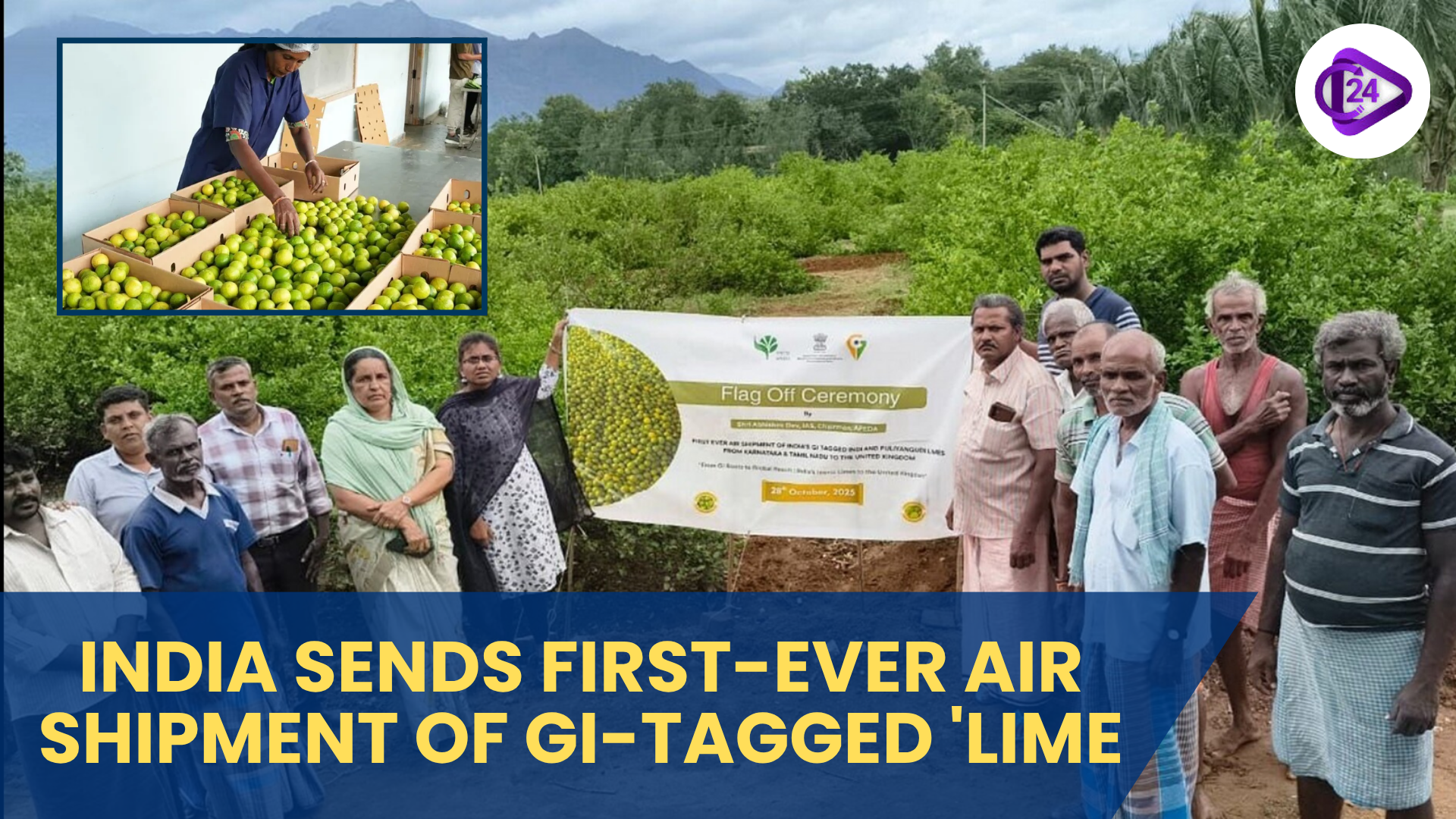Daily Quizzes
Mock Tests
No tests attempted yet.
Select Category

India has achieved a milestone in agricultural exportation by exporting the first air shipment of GI-tagged limes. It has a batch of the famous Indi-Lime of Karnataka and Puliyankudi Lime of Tamil Nadu, which are air-excavated to the United Kingdom. The initiative, which was initiated by the Agricultural and Processed Food Products Export Development Authority (APEDA), is likely to create new opportunities in the world market and improve the livelihood of farmers. The Geographical Indication (GI) tag certifies the distinctive place of origin and quality of the produce, and it is an indication of the increasing role of India in high agro-exports.
Significance of Geographical Indicator (GI) Tag
-
India The Geographical Indications of Goods (Registration and Protection) Act, 1999, became effective on 15 September 2003, forming the registration system of the GIs.
-
In India, the GI-tagged product was launched in 200405 as the Darjeeling Tea.
-
GI tags enhance security over products associated with a particular area, and this is authentic and recognized by the market.
-
They increase potential export, rural income, and conservation of cultural heritage.
-
Uttar Pradesh now boasts the most GI-tagged products in India.
GI-Tagged Limes India’s Global Agri-Trade Presence
-
It was the first time India exported its air shipment of GI-tagged Indi Lime (Karnataka) and Puliyankudi Lime (Tamil Nadu) to the United Kingdom.
-
The Ministry of Commerce and Industry, a state agency (APDEA), promoted the export.
-
The program will facilitate the increased export of GI-tagged fruits in India, ensure that farmers have income, and enhance the international footprint of the agri-trade in India.
Conclusion
The export of GI-tagged Indi and Puliyankudi limes to the UK is a historic move in ensuring enhanced global trade in agriculture in India. This initiative, which has been promoted by APEDA, emphasizes the desire of India to promote region-specific produce, empower farmers, and increase their export potential. It is indicative of the increased exposure of the nation in the global market of high-quality agricultural products.



 Madhya Pradesh Declares 2026 as the Year of Agriculture
Madhya Pradesh Declares 2026 as the Year of Agriculture






